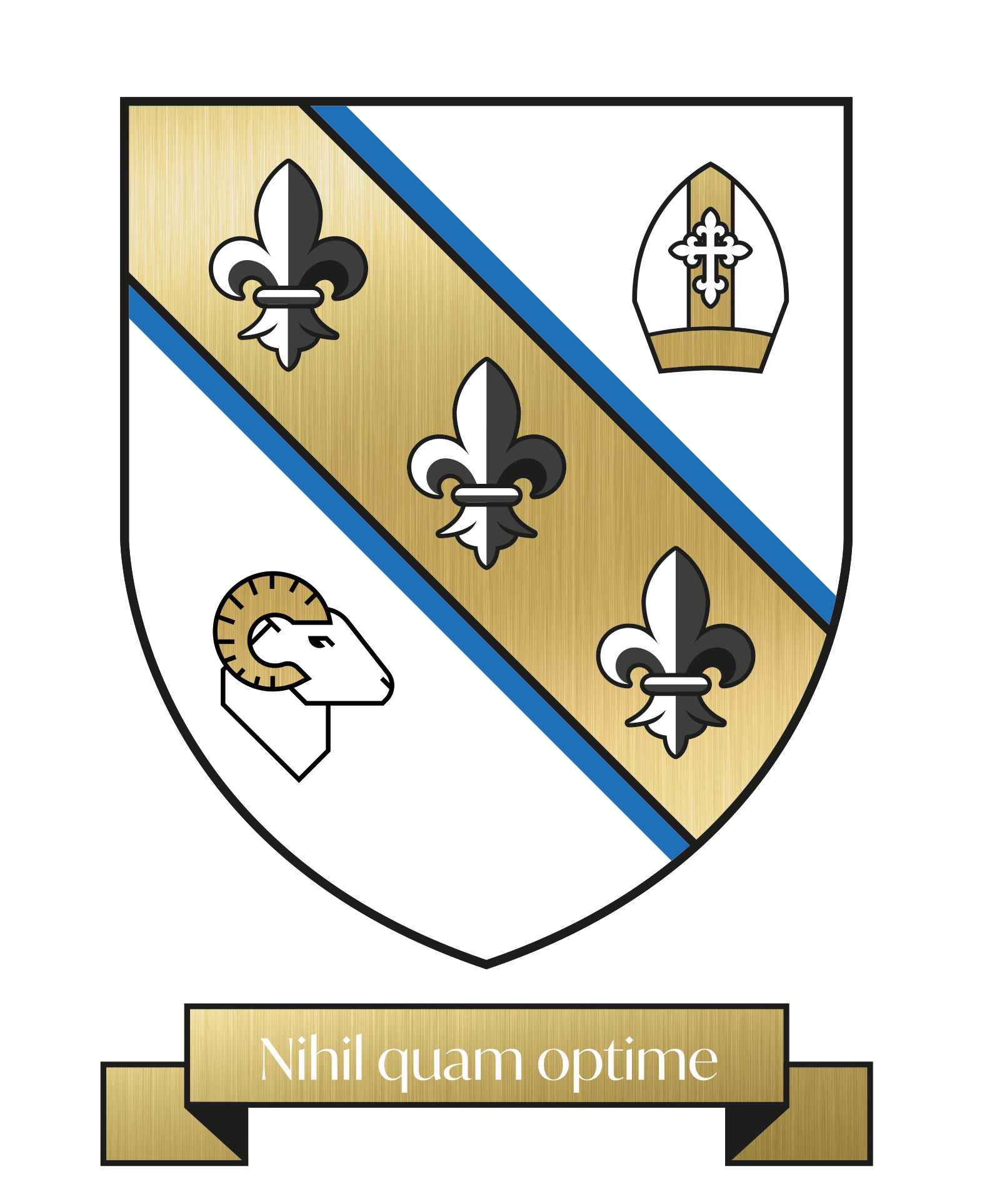Drama
Year 7
Ideas to Reality - Story-telling and Devising
The basics of voice and movement, ability to create characters and communicate with audience and other actors, using stylistic techniques. Check for dialogue which is well-developed.
Half Term 1 - Beowulf
- The basic skills and routines of a drama classroom: how to work in a group and how to perform, how to be an audience.
- We look at Beowulf’s historical context and cultural influence.
- Learn how to use ensemble and narration.
- Begin to devise and rehearse ‘The Battle Of Heorot’.
Half Term 2 - Beowulf Assessment
- Performances of 'The Battle of Heorot' in a group.
- Expect to see narration, still image, transition and ensemble techniques, such as diamond, arrowhead formation.
- Pupils learn how to incorporate knowledge of lighting design and how to operate the lighting desk in performance, as well as how to evaluate self and peers using subject vocabulary.
Half Term 3 - Beowulf
- Group tasks linked to the next battles, the curse and the memorial to Beowulf.
- Increasing independence, audience awareness and integrated skills.
- Ensemble techniques become automatic.
- Assessment of two group pieces: 'Beowulf V Momma G’ and ‘The Memorial to Beowulf’.
Half Term 4 - The Murder of Lord Bryce Jones
- We explore the ‘Whodunnit?’ genre via this original story set in the Edwardian era, with links to the 'Titanic' story.
- We use hot seating to generate characters, backstory and motivation.
- Questioning techniques are practised.
- We look at a police report and a floor plan.
Half Term 5 - The Murder Of Lord Bryce-Jones
- Teacher and volunteer pupils demo examples of possible scenes.
- Pupils create characters and plot through improvisation.
- In small groups, they devise a scene with emphasis on place, secrets and complex connections.
- Rehearsal, refining and extending.
Half Term 6 - The Murder Of Lord Bryce-Jones
- Assessment of work, performance and evaluation.
- Work shows mature understanding of the complexities of family relationships and all techniques.
Year 8
Independence. Maturity. Depth Language of Theatre Makers. Scripted Drama.
Physicality and NVC.
Review lesson by lesson, and at the end of each task and half-term.
Half Term 1 - What a Dad Did
- Extend ensemble skills: doorways, houses, rooms, human and object interaction, fluency of movement. Vlogging, sound FX mechanisms, objects with attitude.
- Focus on instinctive, believable acting for a naturalistic style.
- Expressionist elements, ie the genies, for variety.
Half Term 2 - What a Dad Did
- The slippery nature of wishes, movement for magic, the King Midas story and its moral explored.
- In groups pupils create their own 20-min version.
- Core skills: independent devising and rehearsal. Time management, integrated techniques, especially ensemble, rehearsal, refining, performance and evaluation.
Half Term 3 - The Tempest
- The ‘Whoosh’ (an interactive pacey flow through of the plot to cover character, themes and theatrical challenges.)
- Explore Shakespearean language and approaches to verse speaking for meaning and clarity.
- Watch extracts of RSC 2016 version.
- Links to English lessons if possible.
- Small skills and knowledge checks using still images and character exercises, ie status line-ups, news reports and family groups.
Half Term 4 - The Tempest
- Three pathways: design pathways as theatre makers; costume and lighting with research; theory and simple designs using templates for the human form.
- Mini assessments via shared extracts and moments, ie Caliban’s gabardine skills.
- Assessment: interpretation and performance from script or design skill demonstration.
Half Term 5 - Mask Work
- Concepts and history: homework and research.
- Skills: winding up a mask, safety, improvisation and movement.
- Explore opposites, situational improvisations ie ‘Lost In London’, a parade of masks, giving focus and music, costume, props and masks.
Half Term 6 - Mask Work
- Assessment: devising a masked performance in pairs or threes, independent work, using pupils' own scenarios with guidance, rehearsing, props and music, performing, evaluating.
Year 9
Independence. Conceptual Knowledge. Devising Specialised Pathways.
The Director - Naturalism and Expressionism.
Complex ideas and approaches as foundations for GCSE: moral dilemmas.
Design options. GCSE Readiness.
Half Term 1 - Small Acorns
- Fast action and decision-making.
- Whole class improvisation at pace.
- Larger than life characters.
- Structuring complex scenes using cues and mime.
- GCSE vocabulary.
- Assessment: ‘Lunchtime on Exmoor’.
- Skills consolidation and impact check.
Half Term 2 - Small Acorns
- Exploration of relationships including sibling rivalry and the impact of fame.
- Complex emotion, contrast, proxemics for meaning.
- Assessment: 'The Overlooked Child'. Rehearse and perform, evaluate.
- Next stage of the work looks at friendship conflict after an imaginary reward holiday. Whole class improvisation to create material and backstory.
Half Term 3 - Small Acorns
- Proxemics and levels, a stage slap, acting difficult emotion safely.
- Polish and assess end of 'Friendship' piece.
- Final stages of the SOW are about gang culture and the consequences of violence.
- Whole class improvisation with Teacher in role. Extreme tension and instinctive acting.
- Assessment of group piece: 'Locked In'.
Half Term 4 - Macbeth
- Whoosh, an interactive pacey flow through the plot to cover character, complex themes and theatrical challenges of this tragedy.
- Revisit Shakespearean language and approaches to verse speaking for meaning and clarity.
- Focus on visualisations for theatre, bold choices and vision.
Half Term 5 - Macbeth
- Assessment: still images and commentary to consolidate plot and characters in groups.
- Watch extracts from NT Live production and others, to look at director’s vision and choices of setting.
- Mini ‘Response to Live Performance’ written task.
Half Term 6 - Macbeth
- Theatre makers pathways: acting or design: costume, set, sound, lighting.
- Research, vocabulary and final designs in depth and shareable format.
- Group version of key moments using devising skills, monologue, or duologue scripted extracts.
- Evaluation and analysis proformas are more searching.
